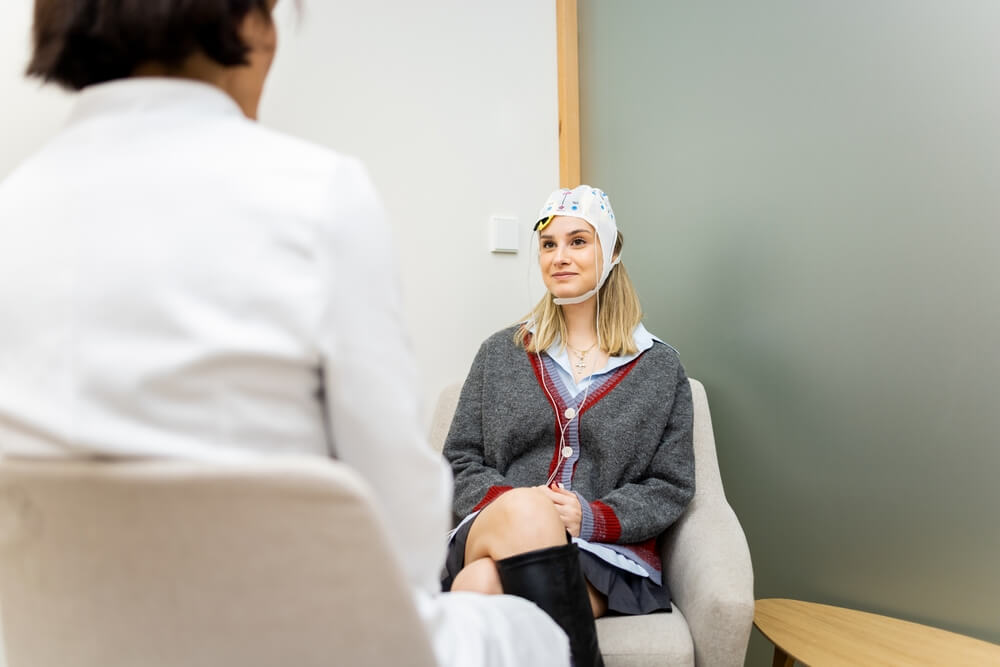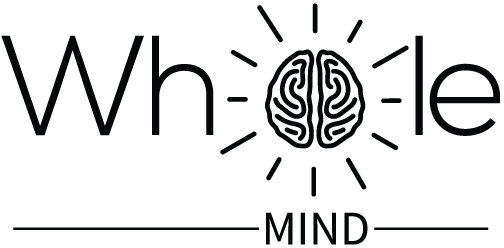Transcranial Direct Current Stimulation (tDCS) is a non-invasive brain stimulation technique that uses a low electrical current to modulate brain activity. This treatment involves placing small electrodes on the scalp, through which a mild electrical current is passed to specific areas of the brain. The goal is to either increase or decrease neural activity in targeted regions, depending on the condition being treated.
tDCS is primarily used to enhance cognitive function and treat mental health conditions. It is a safe and well-tolerated treatment, with effects that can be seen after just a few sessions. tDCS is considered a promising alternative for individuals who may not have found success with conventional treatments such as medication or therapy.
Mental health treatment is evolving, with innovative therapies offering new hope for those who have not found relief with traditional treatments. One of these advancements is Transcranial Direct Current Stimulation (tDCS), a non-invasive therapy that has shown promise in treating conditions such as depression, anxiety, and cognitive impairments. At Whole Mind in Utah and California, we are proud to offer tDCS as part of our comprehensive mental health care approach.

tDCS is effective for a range of mental health conditions and cognitive impairments. Below are some of the primary conditions tDCS can help address:
Depression: Depression is one of the most common mental health disorders, affecting millions of people worldwide. Symptoms include persistent sadness, a lack of interest in daily activities, difficulty concentrating, and changes in appetite or sleep. tDCS can help by stimulating areas of the brain involved in mood regulation, providing relief for individuals who may not respond well to antidepressant medications.
Anxiety Disorders: Anxiety disorders, including generalized anxiety disorder (GAD), panic disorder, and social anxiety disorder, can be debilitating. tDCS can help alleviate symptoms by modulating brain areas associated with fear and stress responses. By balancing neural activity, tDCS offers relief from the persistent anxiety that often disrupts daily life.
Cognitive Impairments: tDCS has been shown to improve cognitive function, including memory, attention, and problem-solving skills. This makes it a beneficial treatment for individuals with conditions like Attention-Deficit/Hyperactivity Disorder (ADHD), traumatic brain injury (TBI), or mild cognitive impairment (MCI). tDCS helps by enhancing the brain’s ability to process information more efficiently, improving overall cognitive performance.
Post-Traumatic Stress Disorder (PTSD): For individuals suffering from PTSD, tDCS offers a promising option for reducing symptoms like flashbacks, hypervigilance, and emotional numbing. By stimulating specific brain regions, tDCS can help manage emotional responses and promote healing, offering relief from the intense stress often experienced by those with PTSD.
The number of tDCS sessions you may need depends on your specific condition and response to treatment. In general, most patients undergo 3-5 sessions per week for 2-4 weeks. After this initial phase, the frequency of sessions may be reduced depending on how well you are responding to treatment.
Your psychiatrist will work with you to develop a personalized treatment plan and help determine the optimal number of sessions required to achieve the best results.

Transcranial Direct Current Stimulation (tDCS) offers several benefits for individuals seeking alternative or complementary mental health treatments. Here are some of the key advantages:
Non-invasive and Safe: tDCS is a non-invasive therapy, meaning it doesn’t require surgery or injections. It uses a low electrical current, which is generally well-tolerated with minimal risk of side effects.
Cognitive Enhancement: tDCS has been shown to improve cognitive function, including memory, attention, and problem-solving skills, making it ideal for individuals with cognitive impairments.
Quick and Convenient: tDCS sessions typically last 20 to 30 minutes and are performed in an outpatient setting. There is no downtime, allowing patients to return to their daily activities immediately after treatment.
Targeted Brain Stimulation: Unlike general medications that affect the whole brain, tDCS allows for targeted stimulation of specific brain regions, improving symptoms related to mood regulation, anxiety, and cognitive function.
Minimal Side Effects: Most patients experience few, if any, side effects. Some individuals may notice mild skin irritation or tingling sensations during the treatment, but these effects are usually temporary.
If you are considering tDCS therapy, here’s what you can expect during a typical session:

Initial Consultation: Before beginning tDCS treatment, you will have a thorough consultation with a board-certified psychiatrist at Whole Mind. This session will involve a review of your mental health history and an assessment to determine whether tDCS is the right option for you.
The Procedure: During the treatment, you will be seated comfortably while small electrodes are placed on your scalp. A mild electrical current will be passed through the electrodes, targeting specific areas of the brain. The treatment is painless, and most people feel a slight tingling sensation or a warm feeling on the skin under the electrodes.
Session Duration: Each tDCS session typically lasts 20 to 30 minutes. During this time, you can relax, read, or listen to music. The procedure is easy to tolerate, and you’ll be able to resume your usual activities right after the session.
Frequency of Sessions: tDCS is typically administered for a series of sessions over a period of several weeks. Most people undergo treatment 3-5 times a week, with the exact frequency depending on individual needs and the condition being treated.
After a tDCS session, you may notice some improvements in your mood, cognitive function, or overall sense of well-being. While results can vary, many patients report feeling more focused, relaxed, and better able to manage stress.
There is no downtime required after treatment, and you can continue with your normal routine. Some people may experience mild skin irritation or a tingling sensation on the scalp, but these effects typically subside shortly after the session.
For the best results, it’s important to continue your treatment plan, which may involve several sessions over a few weeks. Your psychiatrist will closely monitor your progress and make adjustments to the treatment plan as needed.

tDCS can be a beneficial treatment option for individuals who:
Are struggling with depression, anxiety, or PTSD.
Have cognitive impairments or difficulties with memory and attention.
Have not responded well to traditional medications or therapies.
Are seeking a non-invasive, side-effect-minimal therapy to enhance cognitive function or mental health.
A thorough evaluation by a board-certified psychiatrist at Whole Mind is necessary to determine if tDCS is the right treatment for you.

Transcranial Direct Current Stimulation (tDCS) is an innovative, non-invasive therapy that can help individuals struggling with conditions like depression, anxiety, PTSD, and cognitive impairments. By modulating brain activity with a mild electrical current, tDCS offers a targeted approach to improving mental health and enhancing cognitive function.
At Whole Mind, we’re committed to providing the latest and most effective treatments to help you on your journey to better mental health. If you’re interested in learning more about tDCS or want to schedule a consultation, call 801-477-7189 today. Our compassionate team is here to support you every step of the way.
